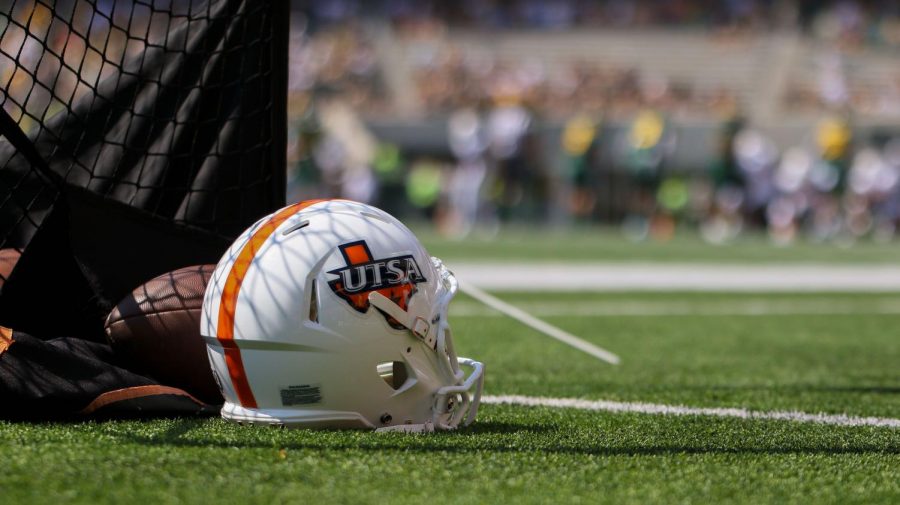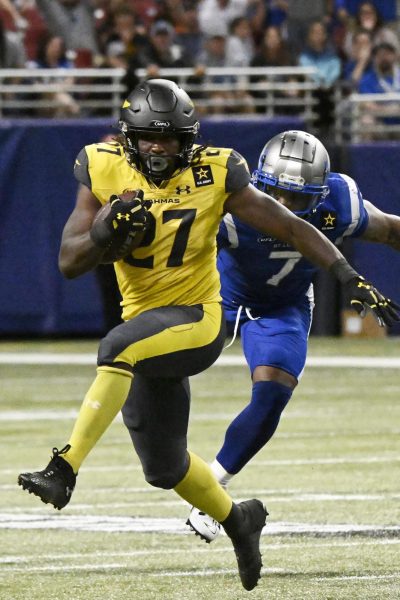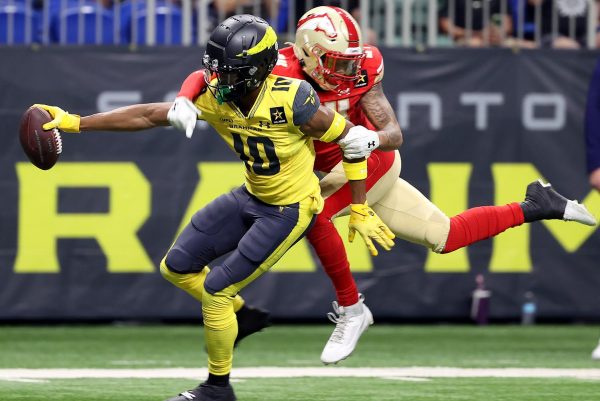‘Runners disappoint in Florida, fall to 4-4 on the season
The Roadrunners were shut down on offense by the Owls, scoring only three points in a momentum-killing loss. After a 3-0 start, the ‘Runners have lost four out of their last five games. Photo by Lindsey Thomas
November 2, 2020
UTSA was unable to rally this weekend after falling behind early to Florida Atlantic in Florida. Rainy conditions made the field of play sloppy and seemed to affect both offenses to a certain extent. The UTSA offense was only able to muster one field goal on the day. The defense did everything they could, even tying a school record with 14 tackles for loss during the game, but it was not enough to stop Florida Atlantic from scoring. The game ended in an uninspiring 24-3 defeat for UTSA.
The first quarter saw Florida Atlantic take an early 10-0 lead. Quarterback Nick Tronti did exactly what he needed to do: throw short completions and find opportunities to scramble. Screens and throws to the flats were common, but running back Malcolm Davidson’s performance on the ground for Florida Atlantic was a huge part of their offense.
Davidson ran for 115 yards on only 14 attempts. Tronti found wide receiver Aaron Young for a touchdown late into the first quarter and ran one in himself near the end of the half. By halftime, Florida Atlantic had gone up 17-3. The only points UTSA was able to muster came from a 49-yard Hunter Duplessis field goal. Duplessis has quickly become the most dependable weapon UTSA has on offense.
Florida Atlantic’s defense was indeed as stout as it appeared to be through two games. Quarterback Frank Harris struggled again; the rainy conditions didn’t help. At halftime, Harris had completed only five of his 13 passes, and the UTSA passing offense had amassed less than 60 yards. It has become extremely evident that UTSA’s most glaring weakness is its air attack. Injuries to and inconsistencies in the quarterback position in general have severely affected the position. This essentially puts the entire weight of the offense on running back Sincere McCormick. McCormick was largely held in check by Florida Atlantic on Saturday, rushing for 54 yards on 3.4 yards per carry. Without his usual gaudy production levels, the offense found itself stuck in the mud.
After halftime, the game became a defensive battle. Both teams traded punts frequently. The Florida Atlantic offense was held back in large part because of the UTSA defense’s habit of blowing up plays behind the line of scrimmage. UTSA, on the other hand, was limited mostly by quarterback play.
Harris looked to be playing through his knee sprain, and while he was running at his regular rate, he was neither as explosive nor as comfortable-looking when doing so. After getting hit extensively by Louisiana Tech last week, Harris yet again had to endure some seemingly painful tackles. Harris’ health could have been the reason why he was eventually replaced by backup Jordan Weeks. Weeks had control of the offense for a significant part of the second half but didn’t fare much better than Harris. He ended the game with only 17 yards passing and two completions. Weeks was also sacked three times. The UTSA offensive line gave up a total of seven sacks on the day.
The 24-3 loss shined a harsh light on several UTSA weaknesses. Injuries to the quarterback position, inconsistent blocking by the offensive line and penalty issues have shown up at different points during the season, but they all had their time in the spotlight during this game. UTSA will return to Texas to face Rice in Houston and will look to get a win against a team who, like Florida Atlantic, have seen significantly less action during the 2020 season.










